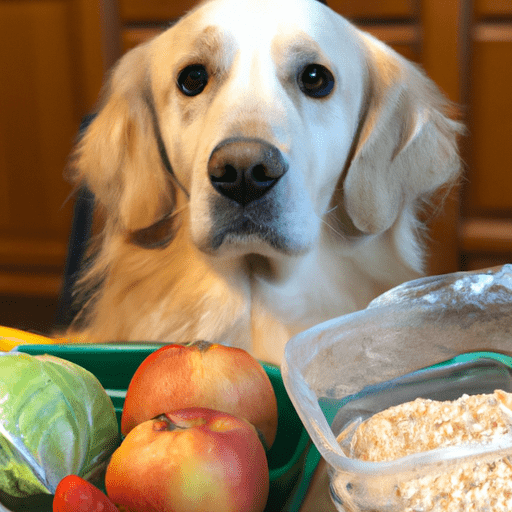As a caregiver to your furry friend, you may often find yourself wondering, “What human foods can my dog have?” It’s a common question, and one that deserves a thorough answer. Read on to discover which human foods are safe for your pet and which ones you should avoid.
1. Safe Foods For Dogs
Let’s start with the good news. Many human foods are safe for dogs and can even provide health benefits. Here are some you might consider adding to your dog’s diet:
- Peanut Butter: Rich in good fats and protein, this tasty treat is a favorite among dogs. However, make sure it’s unsalted and doesn’t contain xylitol, a sweetener harmful to dogs.
- Carrots: These are a great low-calorie snack for dogs, and they’re also good for your dog’s teeth.
- Blueberries: Packed with antioxidants, these can be a nutritious treat for your dog.
- Chicken: Cooked chicken can be a great source of protein for dogs. Just make sure it’s plain and not seasoned.
2. Foods To Avoid
Unfortunately, not all human foods are safe for dogs. Here are a few to avoid:
- Chocolate: This delicious treat for humans can be lethal for dogs due to a compound called theobromine.
- Grapes and Raisins: These can cause kidney failure in dogs.
- Onions and Garlic: These can damage a dog’s red blood cells, leading to anemia.
Avoid these foods to keep your furry friend safe and healthy.
3. Nutritional Balance
The key to a healthy diet for your dog is balance. If you choose to supplement your dog’s diet with human food, make sure it doesn’t exceed 10% of their overall diet. The majority of their nutrition should come from high-quality dog food.
4. Preparing Human Foods for Dogs
When preparing human foods for dogs, always cook meat thoroughly to kill bacteria. Avoid adding seasoning, as spices like garlic and onion powder can be harmful to dogs.
5. Monitoring Your Dog’s Reaction
When introducing a new food, monitor your dog closely for any adverse reactions, such as diarrhea, vomiting, or changes in behavior.
6. Consulting Your Vet
Before making any significant changes to your dog’s diet, it’s always a good idea to consult your vet. They can provide tailored advice based on your dog’s breed, age, size, and overall health.
7. Table of Safe and Unsafe Foods
| Safe Foods | Unsafe Foods |
|---|---|
| Peanut Butter | Chocolate |
| Carrots | Grapes/Raisins |
| Blueberries | Onions/Garlic |
| Cooked Chicken | Alcohol |
8. FAQs
Q: Can my dog eat apples?
A: Yes, apples are safe for dogs, but avoid the seeds and core as they can be a choking hazard.
Q: Is cheese safe for dogs?
A: Yes, in small amounts. However, some dogs are lactose intolerant, so monitor for any digestive upset.
Q: Can dogs eat bananas?
A: Yes, bananas are safe for dogs and can be a healthy treat in moderation.
Q: What about bread?
A: Plain bread is generally safe for dogs, but avoid any breads containing raisins, spices, or artificial sweeteners.
As a caregiver, it’s normal to want the best for your pet. By being informed about what human foods are safe for your dog, you can ensure they enjoy a varied, balanced, and nutritious diet.



